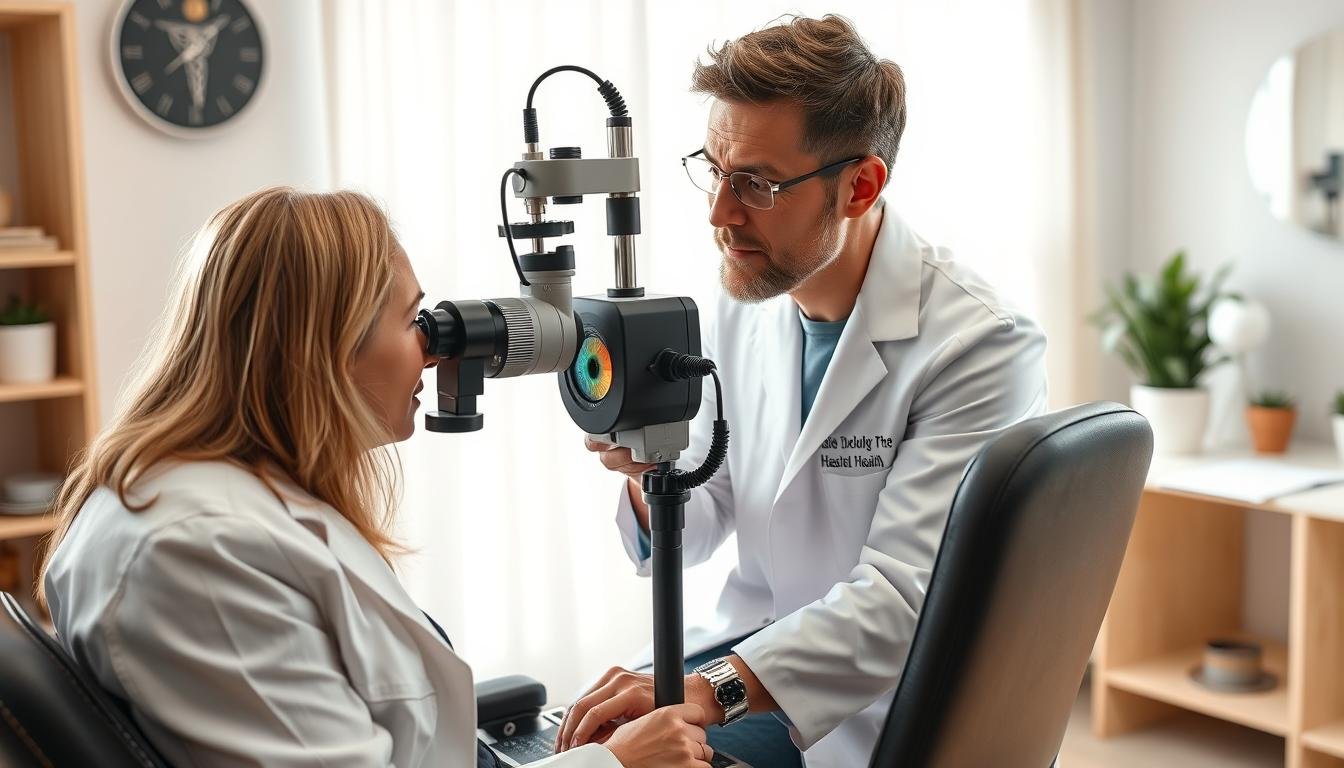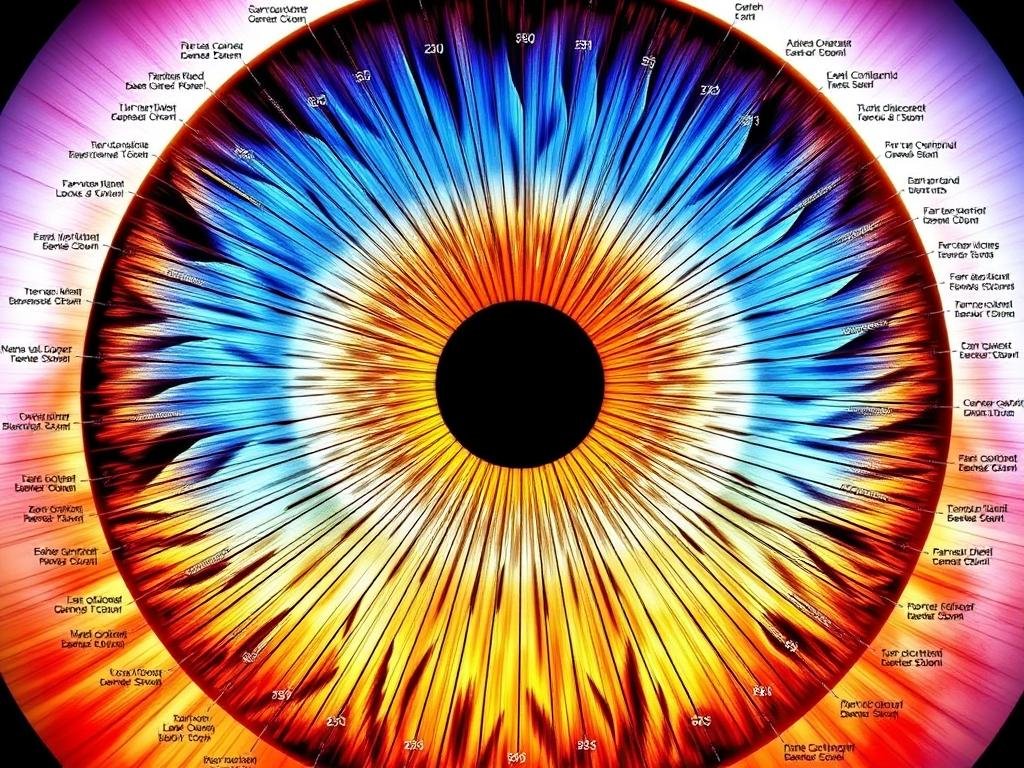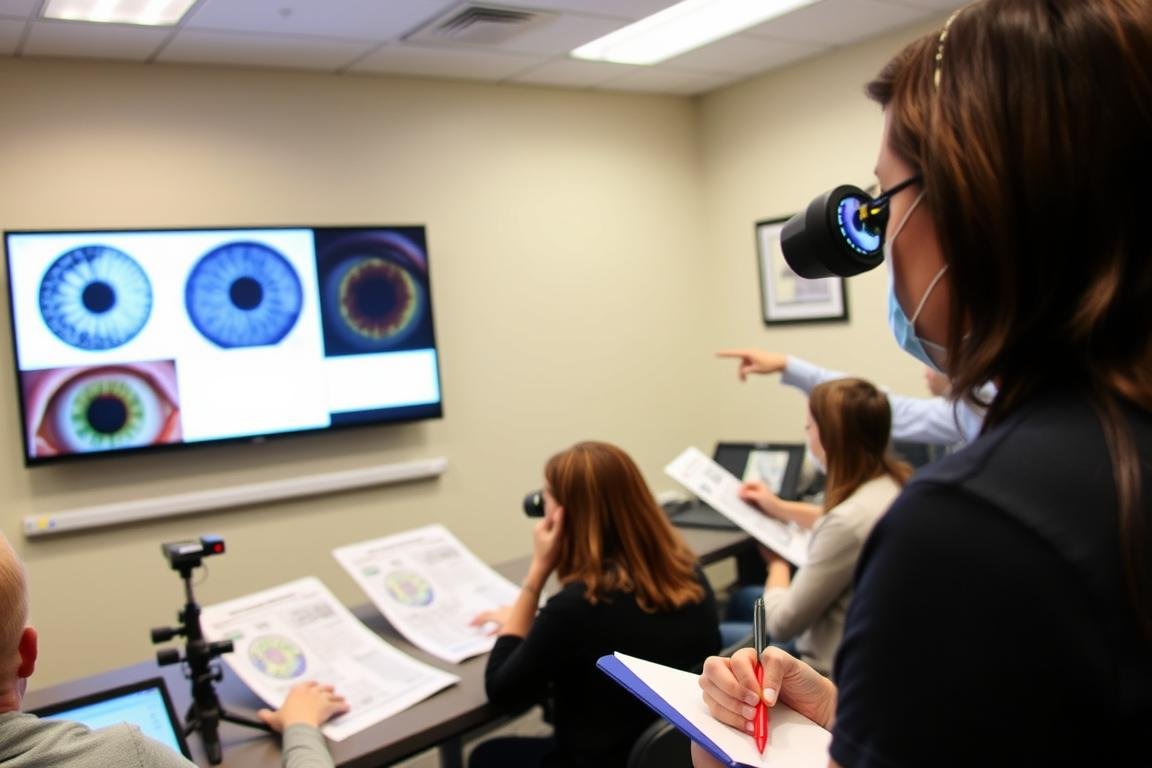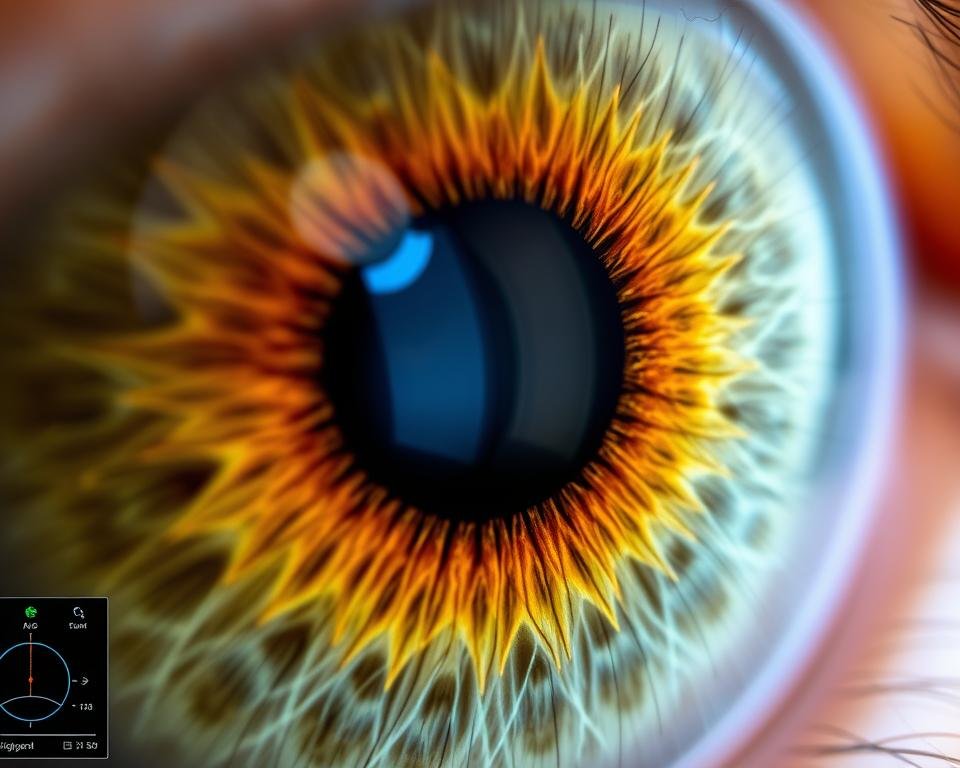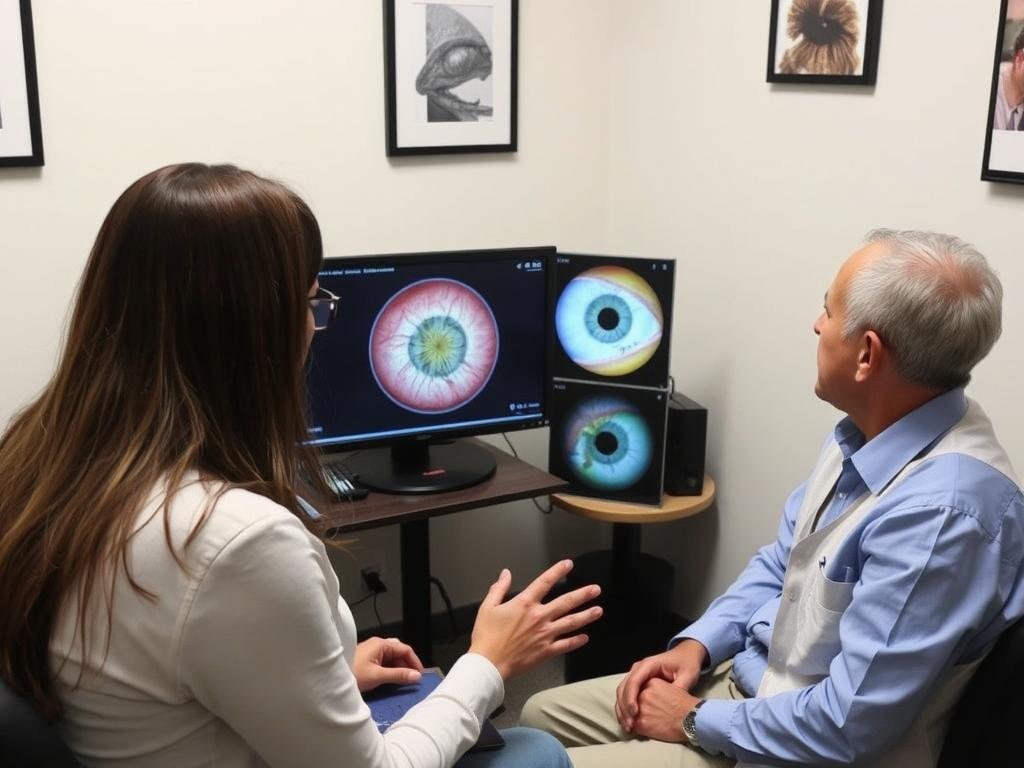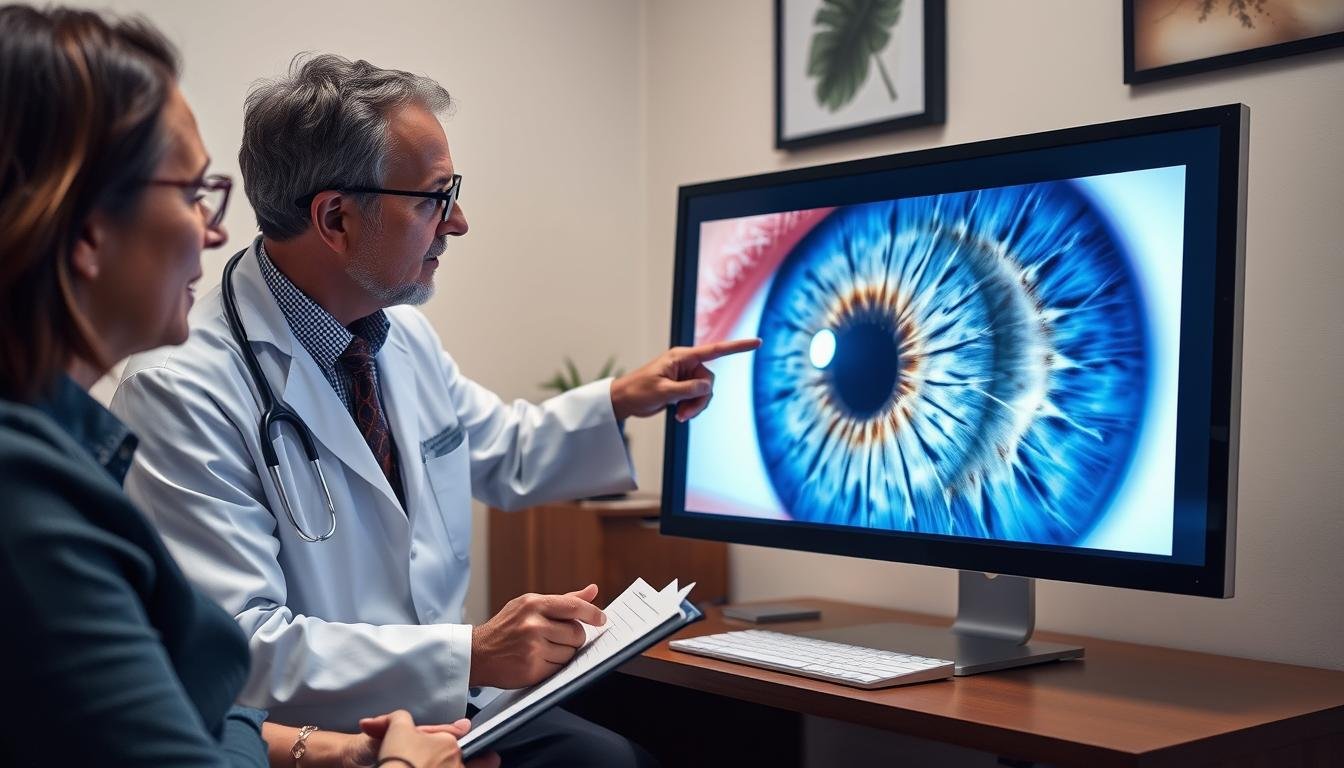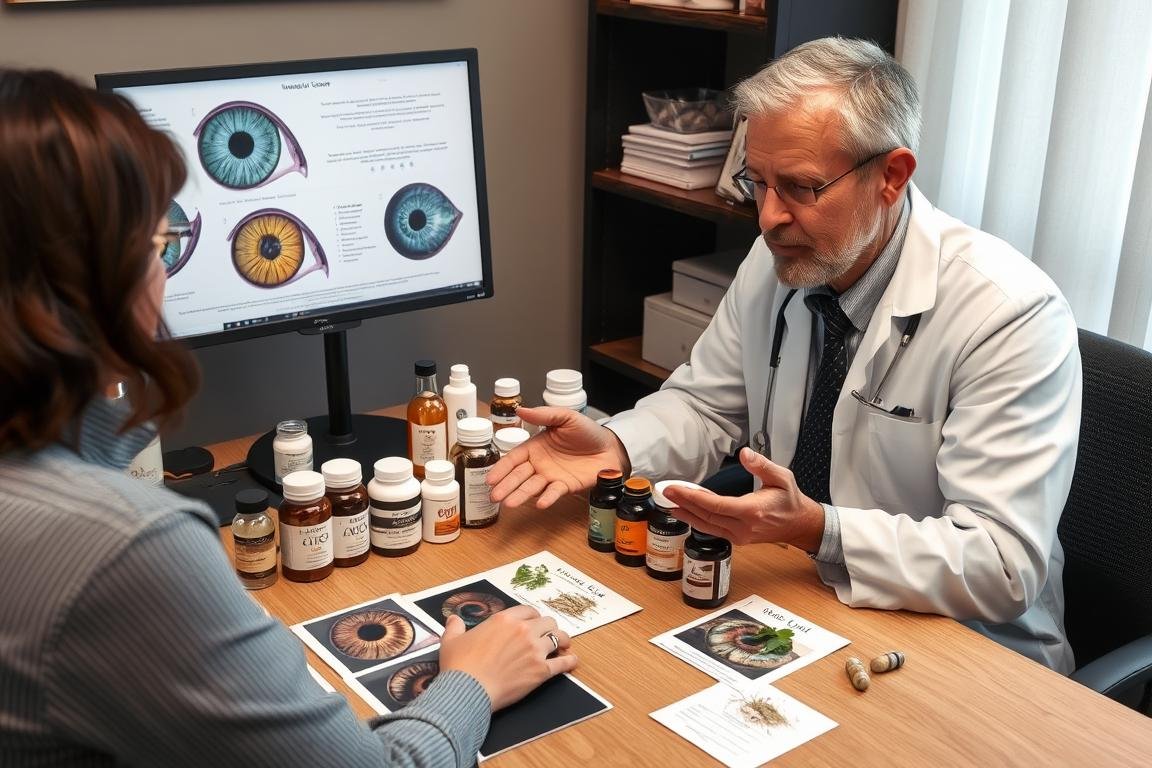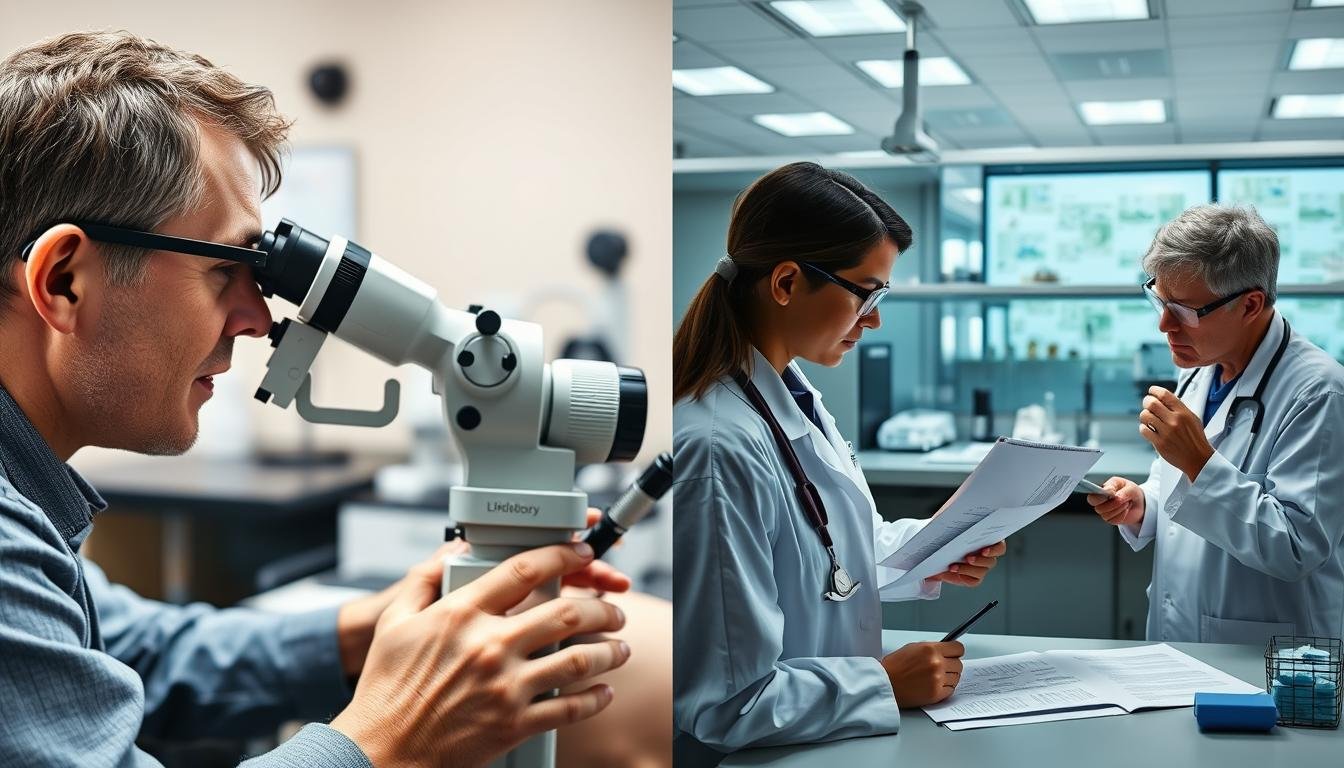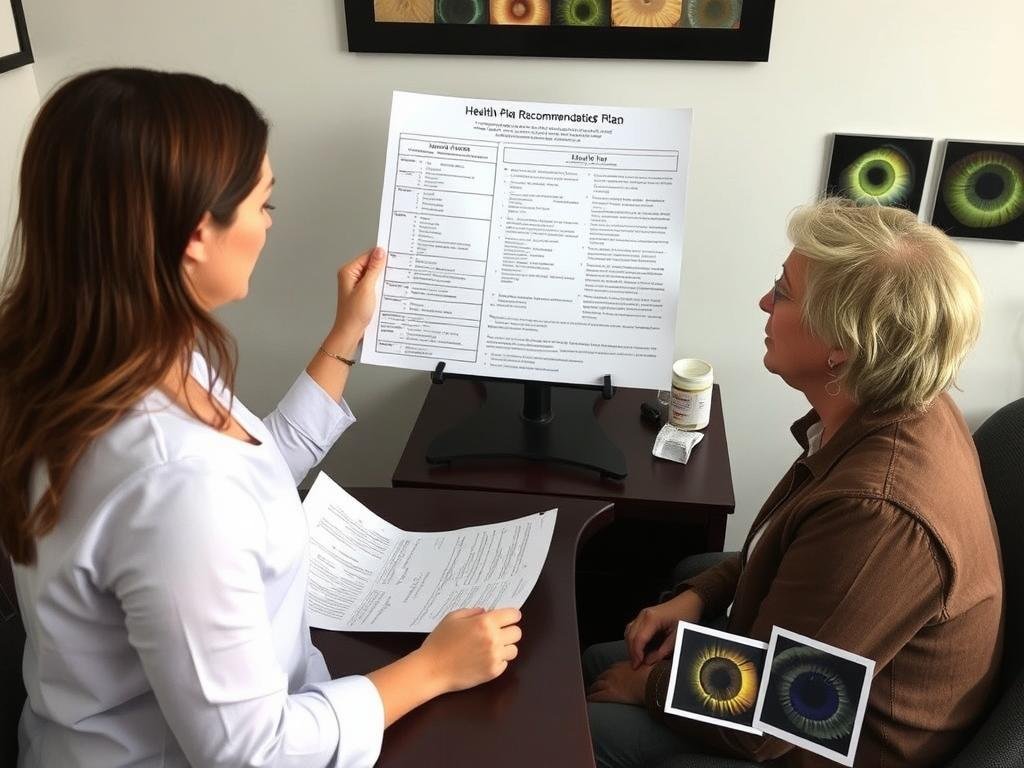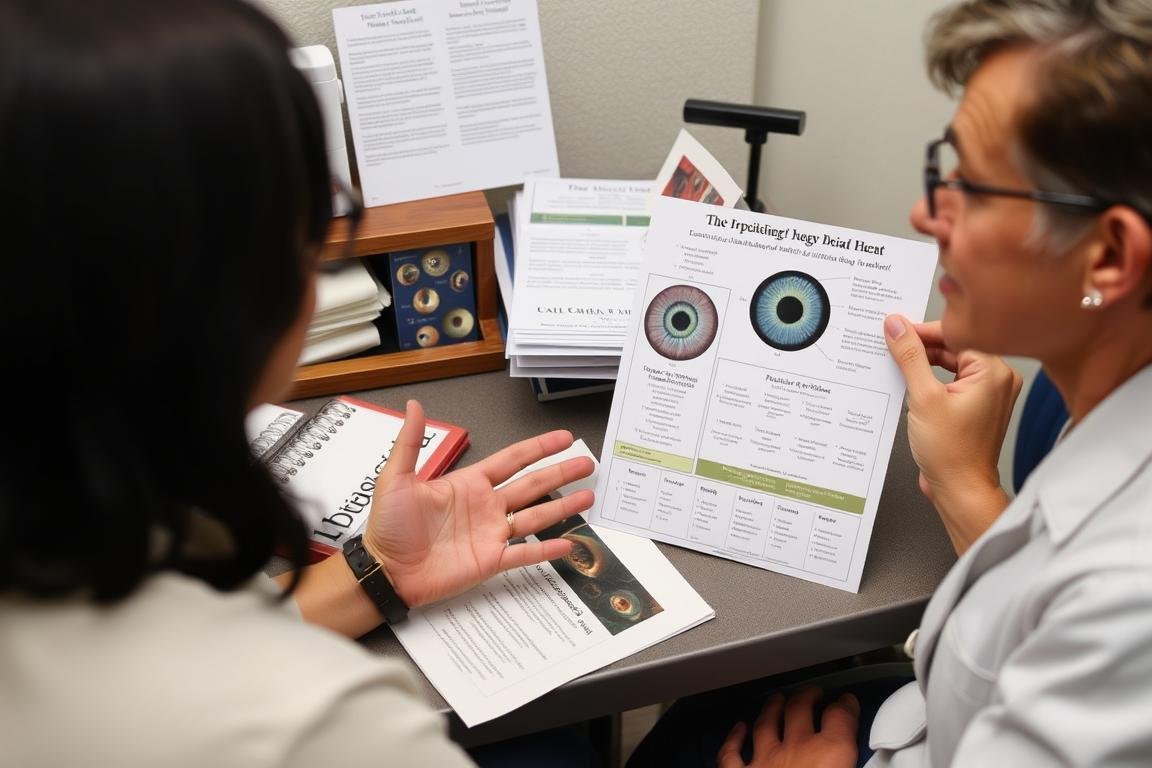An iridologist doctor specializes in analyzing the patterns, colors, and characteristics of the iris—the colored part of your eye—to gain insights about your overall health. This alternative medicine practitioner uses holistic eye analysis to identify potential health imbalances and underlying conditions before they manifest as physical symptoms. As interest in complementary health approaches grows, understanding the role of an iridologist doctor and how iris diagnosis works can help you determine if this assessment method aligns with your wellness goals.
What Is Iridology and How Does an Iridologist Doctor Practice It?
iridología is the study of the iris patterns and their relationship to health conditions. The practice is based on the premise that the iris contains a detailed map of the body, with different zones corresponding to specific organs and systems. An iridologist doctor examines these zones for signs of inflammation, toxicity, or other imbalances that may indicate health issues.
The iris is divided into approximately 60 sections, each representing different parts of the human body. Iridologists believe that changes in these sections—such as discolorations, spots, rings, or structural alterations—can provide valuable information about a person’s health status and predispositions.

During a consultation, an iridologist doctor will typically:
- Tome fotografías de alta resolución de ambos iris.
- Examine the iris structures using specialized magnification tools
- Compare findings to standardized iridology charts
- Identify patterns that may indicate health imbalances
- Provide a comprehensive assessment of potential health concerns
- Recommend lifestyle changes, dietary adjustments, or supplements
While conventional medicine doesn’t recognize iridology as a diagnostic method, many holistic health enthusiasts find value in the personalized insights it provides about their body’s strengths and weaknesses.
¿Tienes curiosidad por la salud de tu iris?
Discover what your iris might reveal about your health with a professional assessment from a qualified iridologist.
Encuentre un iridólogo cerca de usted
Training and Certification Requirements for Iridologist Doctors
A diferencia de los médicos convencionales, iridologist doctors follow a different educational path. Since iridology is considered an alternative medicine practice, certification requirements vary by country and region. However, reputable practitioners typically pursue comprehensive training to ensure they can provide accurate iris analysis.

Entrenamiento Básico
- Introduction to iridology principles
- Anatomía y fisiología del ojo.
- Basic iris mapping techniques
- Identification of common iris signs
- Fundamental health assessment skills
Advanced Certification
- Comprehensive iris analysis methods
- Constitutional iridology approaches
- Integración con otras modalidades holísticas.
- Clinical case studies and practicum
- Professional ethics and practice standards
Educación continua
- Latest research in iridology
- Advanced diagnostic techniques
- Specialized areas (pediatric, geriatric)
- Complementary modalities
- Practice management and client communication
Many iridologists also have backgrounds in other health-related fields such as naturopathy, nutrition, herbalism, or traditional Chinese medicine. This interdisciplinary knowledge allows them to provide more comprehensive health recommendations based on their iris analysis findings.
“Proper training in iridology requires not just understanding iris patterns, but also how they relate to overall physiology and natural healing approaches. A qualified iridologist doctor should be able to explain their findings clearly and work collaboratively with other healthcare providers.”
— International Iridology Practitioners Association
When seeking an iridologist doctor, look for credentials from recognized organizations such as the International Iridology Practitioners Association (IIPA), the National Iridology Research Association (NIRA), or other reputable certifying bodies in your region.
How Iridologist Doctors Analyze Iris Patterns
The process of analyzing iris patterns is methodical and detailed. Iridologist doctors use specific techniques to examine the colored part of the eye and interpret what they observe according to established principles in the field.

The Iris Examination Process
Modern iridologist doctors typically use high-resolution digital cameras with specialized magnification to capture detailed images of both irises. These images allow for careful examination of the intricate structures and markings that might not be visible to the naked eye.
During analysis, the practitioner looks for several key indicators:
- Estructura de fibra – The arrangement and integrity of iris fibers can indicate constitutional strength
- variaciones de color – Changes in pigmentation may suggest chemical imbalances or toxin accumulation
- Rings and markings – Circular formations often relate to specific health conditions
- Lacunae and lesions – Darkened areas that may indicate tissue damage or weakness
- Características de la pupila – Size, shape, and border qualities that reflect nervous system function
Signos comunes del iris y sus significados
- rosario linfatico – White clouds around the iris edge suggesting lymphatic system congestion
- Borde de caspa – Dark ring at the outer edge indicating potential skin elimination issues
- anillos nerviosos – Circular lines reflecting nervous tension or stress
- Radiación solar – Spoke-like lines that may indicate digestive weaknesses
- Manchas psóricas – Small, distinct flecks that suggest inflammatory tendencies
After completing the analysis, an iridologist doctor creates a comprehensive assessment that maps observed iris features to potential health concerns. This assessment serves as a foundation for personalized health recommendations rather than as a medical diagnosis of specific diseases.

Experience a Professional Iris Analysis
Discover what your iris patterns might reveal about your health with a comprehensive assessment from a certified iridologist.
Programe una consulta
Common Health Conditions and Concerns Addressed by Iridologist Doctors
Iridologist doctors observe specific markers in the iris that may indicate various health conditions or predispositions. While they don’t diagnose diseases, they can identify potential areas of weakness or imbalance that might benefit from supportive care.

Sistema digestivo
- Nutrient absorption issues
- Intestinal flora imbalances
- Liver and gallbladder stress
- Pancreatic function concerns
- Stomach acidity irregularities
Circulatorio & Linfático
- Congestión linfática
- Circulation inefficiencies
- Tendencias de la presión arterial
- Indicadores de estrés cardiovascular
- Desafíos del sistema inmunológico
Sistema nervioso & Metabolismo
- Patrones de respuesta al estrés
- Adrenal function
- Thyroid imbalances
- Nerve irritation
- Energy production issues
Iridologist doctors also commonly address nutritional deficiencies, inflammation patterns, toxin accumulation, and hormonal imbalances through their analysis. They may recommend dietary changes, herbal supplements, detoxification protocols, or lifestyle modifications based on their findings.
Nota importante sobre las limitaciones de la iridología
Iridology is considered a complementary assessment tool rather than a diagnostic method for specific diseases. An iridologist doctor will typically recommend consulting with conventional medical practitioners for diagnosis and treatment of serious health conditions, while offering supportive insights from their iris analysis.

Benefits vs. Criticisms of Iridology: What the Research Shows
Like many alternative health practices, iridology has both devoted advocates and skeptical critics. Understanding both perspectives can help you make an informed decision about whether consulting an iridologist doctor aligns with your health goals.

Beneficios potenciales de la iridología
- Non-invasive assessment method with no discomfort
- Puede identificar posibles problemas de salud antes de que aparezcan los síntomas.
- Proporciona una visión holística de los sistemas corporales y sus interacciones.
- Can complement other health assessments with unique insights
- Encourages preventative health approaches and self-care
- Personalized recommendations based on individual constitution
Common Criticisms and Limitations
- Limited scientific validation in peer-reviewed research
- Falta de estandarización en la práctica y la interpretación.
- Cannot diagnose specific diseases with medical certainty
- Practitioner skill and training varies significantly
- Puede retrasar el tratamiento médico adecuado si se confía exclusivamente en él.
- Controlled studies have not consistently supported claims
What Research Studies Say
Several scientific studies have examined the validity of iridology with mixed results. A systematic review published in the journal “Complemento de investigación” (1999) examined four case-control studies and concluded that iridology’s efficacy was not supported by scientific evaluations.
Another study in the “Archivos de Oftalmología” (2000) suggested that iridology had limited benefit and recommended that patients and therapists be cautious about relying on it for health assessments.
However, proponents point to positive anecdotal evidence and practitioner case studies that suggest iridology can provide valuable insights when used as part of a comprehensive health assessment approach rather than as a standalone diagnostic tool.
“While conventional medicine has not embraced iridology, many holistic practitioners find it offers a unique perspective on constitutional tendencies and potential imbalances that can guide personalized wellness recommendations.”

How to Choose a Qualified Iridologist Doctor: 5 Key Criteria
Finding a reputable iridologist doctor requires careful consideration. Since the field isn’t regulated in the same way as conventional medicine, it’s important to evaluate potential practitioners using specific criteria to ensure you receive quality care.

1. Verify Credentials and Training
Look for certification from recognized iridology organizations such as the International Iridology Practitioners Association (IIPA), the National Iridology Research Association (NIRA), or other reputable institutions. Ask about their specific training program, duration, and whether they pursue continuing education.
Certification Check
Request to see their certification documents and verify with the issuing organization if possible.
2. Assess Experience and Specialization
Inquire about how long they’ve been practicing iridology and approximately how many clients they’ve worked with. Some iridologist doctors specialize in specific health concerns such as digestive issues, hormonal balance, or detoxification. If you have particular health interests, find someone with relevant experience.
Experience Indicator
An experienced practitioner should be able to share anonymous case studies or examples of how they’ve helped clients with concerns similar to yours.
3. Evaluate Their Approach and Philosophy
A qualified iridologist doctor should take a balanced approach that acknowledges both the insights iridology can provide and its limitations. They should be willing to collaborate with conventional healthcare providers and should never discourage you from seeking medical care when appropriate.
Red Flag
Be cautious of practitioners who claim to diagnose specific diseases solely through iridology or who discourage conventional medical treatment.
4. Review Client Testimonials and References
Ask for client testimonials or references that can speak to their experience working with the practitioner. Online reviews can also provide insights, though they should be considered alongside other criteria. Look for comments about the practitioner’s professionalism, thoroughness, and whether clients found value in their recommendations.
Verification Tip
Ask if you can speak briefly with a current or former client to get firsthand feedback about their experience.
5. Consider Communication Style and Rapport
The best iridologist doctor for you will communicate clearly, answer your questions thoroughly, and make you feel comfortable. They should explain their findings in understandable terms and provide clear, actionable recommendations. An initial consultation can help you assess whether their communication style works for you.
Good Practice
A qualified practitioner should be willing to explain the reasoning behind their observations and recommendations rather than expecting blind trust.
Frequently Asked Questions About Iridologist Doctors
Here are answers to common questions about iridology practices and what to expect when consulting with an iridologist doctor.

How much does an iridology consultation typically cost?
Iridology consultation fees vary widely depending on location, practitioner experience, and session length. Initial consultations typically range from $75 to $200 and usually last 60-90 minutes. Follow-up sessions are often shorter and less expensive. Some practitioners offer package deals for initial assessment plus follow-up visits. Health insurance rarely covers iridology services since they’re considered alternative medicine.
What should I expect during my first appointment with an iridologist doctor?
Your first appointment will typically include:
- A health history discussion covering your concerns, symptoms, and goals
- Iris photography using specialized equipment
- Analysis of your iris patterns by the practitioner
- Explanation of findings and their potential significance
- Recommendations for dietary changes, supplements, or lifestyle modifications
- Opportunity to ask questions about the assessment
The entire process is non-invasive and painless. You may be asked to avoid wearing contact lenses to the appointment.
Can iridology detect serious medical conditions like cancer?
Iridology is not designed to diagnose specific diseases like cancer, and reputable practitioners will not claim to do so. Instead, iridology may identify areas of weakness or stress in body systems that could benefit from supportive care. If an iridologist notices concerning patterns, they should refer you to appropriate medical professionals for proper diagnosis and treatment. Iridology should be viewed as a complementary assessment tool rather than a replacement for conventional medical diagnosis.
How often should I have my irises analyzed?
For most people, an initial assessment followed by a follow-up 3-6 months later is sufficient to establish baseline information and track changes after implementing recommendations. After that, annual assessments are common for maintenance. However, this can vary based on individual health goals and concerns. Some practitioners recommend more frequent analysis when addressing specific health challenges, while others suggest longer intervals for general wellness monitoring.
Can children benefit from iridology assessments?
Many iridologist doctors work with children, as iris analysis can provide insights into constitutional tendencies that may be helpful for supporting a child’s development. The process is gentle and non-invasive, making it suitable for cooperative children. Some practitioners specialize in pediatric iridology and can adapt their approach to make the experience comfortable and engaging for younger clients. As with adults, iridology for children should complement, not replace, regular pediatric medical care.
¿Tiene más preguntas sobre la iridología?
Speak with a certified iridologist to get personalized answers to your questions about iris diagnosis and how it might benefit your health journey.
Contact an Iridologist Today
Conclusion: Is Consulting an Iridologist Doctor Right for You?
Iridology offers a unique perspective on health assessment through the analysis of iris patterns. While scientific validation remains limited, many individuals find value in the holistic insights and personalized recommendations that iridologist doctors provide.
When approached as a complementary tool within a broader health strategy—rather than as a replacement for conventional medical care—iridology can contribute to a more comprehensive understanding of your body’s tendencies and potential areas for supportive intervention.
The decision to consult an iridologist doctor is personal and should be based on your health philosophy, goals, and comfort with alternative assessment methods. If you choose to explore iridology, remember to select a qualified practitioner using the criteria outlined in this guide, maintain open communication with all your healthcare providers, and approach the process with balanced expectations.


